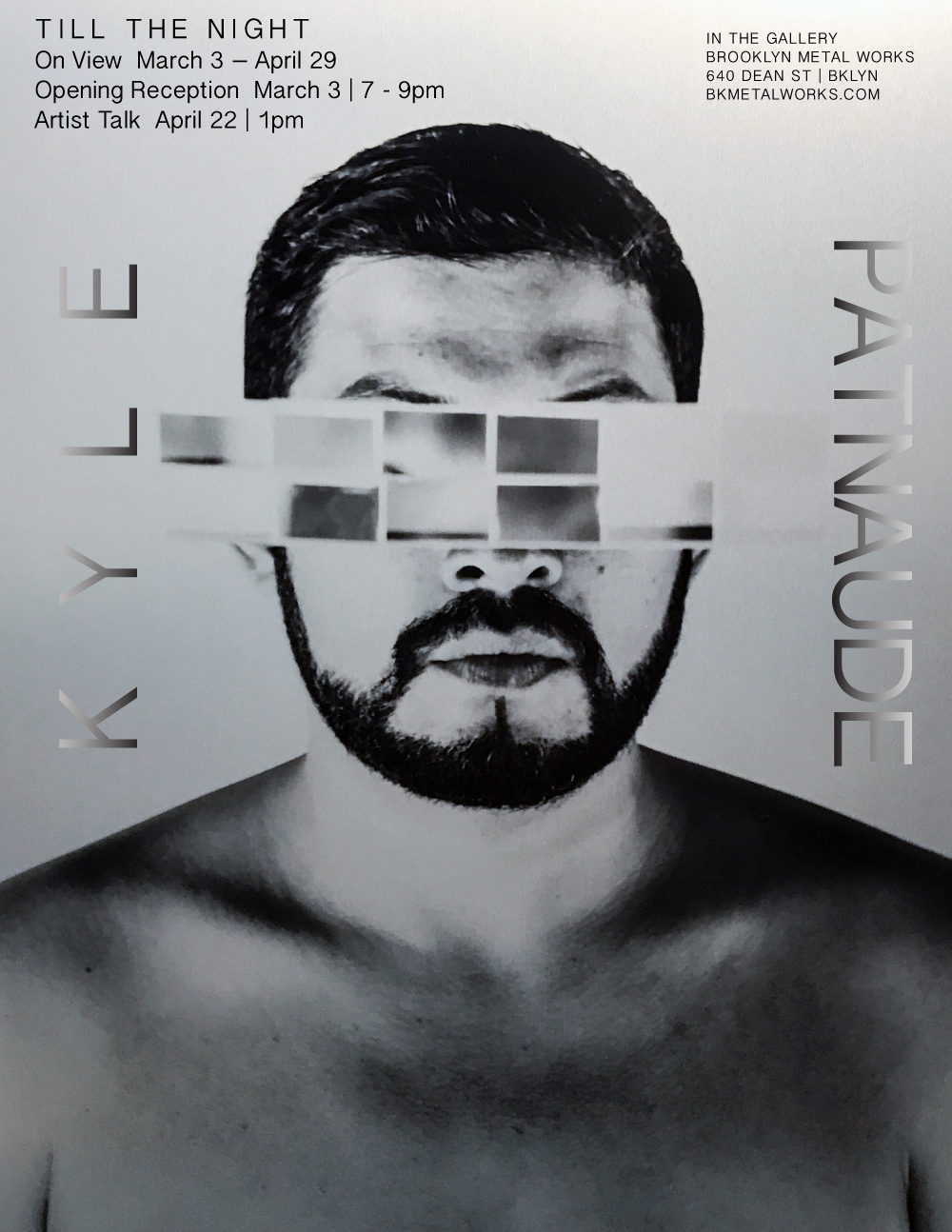Till the Night | Kyle Patnaude
Kyle Patnaude’s work explores the emotive and humanistic coding of objects, specifically a certain “queerness” pertaining to the cultural guise of hypermasculinity. In Till The Night Patnaude works with queer narratives, from inherently counter-culture gay tropes to the Homoromanticism of masculine power within authoritarian regimes. Using historical figures as touch points Patnaude constructs representational characters to develop this dialog throughout the exhibition.
Included in these investigations are themes of persecution. Says Patnaude “Where much of queer work celebrates the progressive gay narrative, I choose to cultivate from darker regions of my community and culture. For several years Russia and the southern Republic of Chechnya have committed hundreds of acts of abduction, torture, and murder of men suspected of being homosexual. The exhibition features nineteen aluminum photo prints of gay and trans men with their eyes pixelated. The audience determines their identities through implication as victim or criminal, their erasure, or preservation of anonymity—and themselves as either activist or bystander.”
The objects portrayed within Patnaude’s work often examine public elements such as city streets, restrooms, and parks, providing a subtext of “queerness” and double meaning. Till The Night includes three turned aluminum truncheons, the weapon of police and symbol of authority, as tokens of masculine prowess. These pieces are wearable as necklaces as is the rubber ‘sautoir’ made from a recurrent symbol in Patnaude’s work, a manhole cover pattern. The latter is shown as a garland on Jacksie, a queer skinhead, the Alt-Right caricature of gay fascism in Patnaude’s narrative.
Kyle Patnaude is currently based in Portland, Maine as a Visiting Assistant Professor at Maine College of Art. He completed his BFA degree in Sculpture from Pratt Institute in 2006 and in 2012 received an MFA in Metalsmithing from the University of Wisconsin Madison. Embracing a hybrid practice as a sculptor rooted in the rich traditional methods of metalsmithing, the work unites contemporary sculptural forms with the skill and elegance of precious metalworking.

